Contents
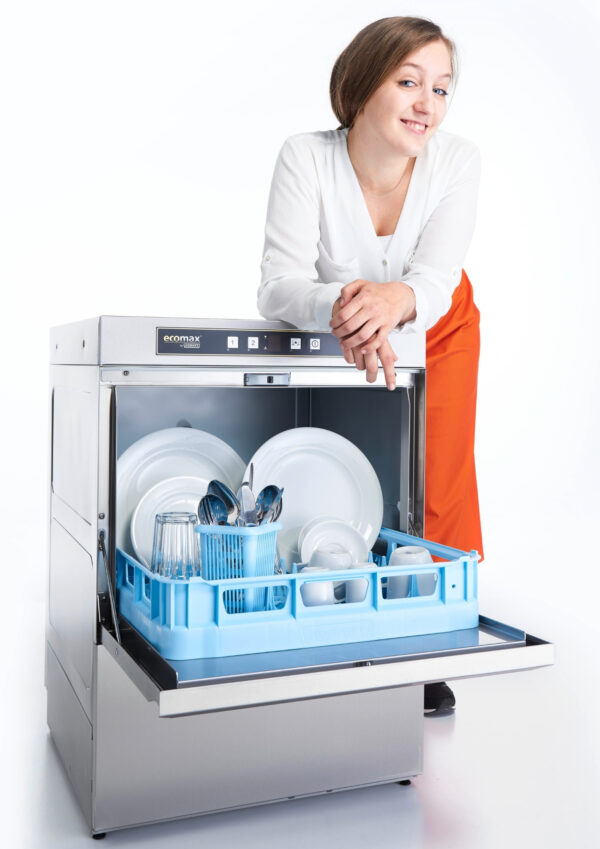
No hospitality venue with plenty of hustle and bustle is complete without proper dishwashing equipment. Even smaller bars and family-owned restaurants usually boast a new or used commercial dishwasher. With one, businesses can cater to the constant demand for food and drinks with cleanliness and efficiency.
Of course, all restaurants and bars are not created equal; different types of venues require different levels of dishwashing. Massive restaurants can’t work with a simple undercounter dishwasher, while a small pub could lose money powering a larger pass through dishwasher.
Below are some things you should be aware of before committing to a particular model of commercial dishwasher for sale.

Usage
This one seems redundant, but it’s important to recognize the actual function of the dishwasher you’re planning on purchasing. Many people assume that, because of a dishwasher’s high-temperature cleaning cycle, it doesn’t matter how much food is still on the plate when it’s thrown into the wash. The plate will come out clean no matter what, right?
Not quite! Your prospective dishwasher is excellent at rinsing, but it should not be relied on to do all the cleaning, as well. Too many food particles will block your filter to accumulate excessive amounts of grease. You don’t want to be serving guests on plates exposed to that! Remember to scrape and rinse off plates before placing them in the machine. Your detergent brand will do some of the work, however this needs to be adjusted on the machine to help in washing away the grease and oils.
Maintenance
It’s important to recognize a maintenance concern early to maximize your industrial dishwasher’s lifespan. Luckily, these are usually easy to recognize. For instance, you can take note of overheating issues. Yes, your dishwasher will be in near-constant use on a good day, which means it will constantly be at high temperatures. After some time, this can result in the dishwasher overheating and needing a minute to cool down. If this occurs once in a blue moon, it’s almost certainly nothing to worry about. If it’s happening every day, it’s time to call in repairs. If your rinsing temperature cannot keep up with demand, it could be the water supply temperature is to low, have this checked. Sometimes the kitchen hand leaves the hot water tap on, this can use up all the hot water, which will then slow down cycle times.
Similarly, if you notice the inside of your dishwasher getting smelly, that likely means it needs a good cleaning. Your dishwasher’s washing chamber should be getting cleaned daily, but the harder to reach inner workings might require a specialist to clean. If its smelly check your detergent supply, it needs to smell like a dishwasher, not a garbage can. If its all white inside and has heavy scale – use a commercial descaler.
Sanitation
Your new dishwasher will need to be cleaned daily to be reliably sanitary. The filter will usually accumulate all the food and waste particles which are on each load of plates and glasses, which means the filter should never be neglected. However, the inside walls of the washer will also need wiping down. Certain food products are stubborn and ignoring them for too long can leave a filmy layer over the inside of the washer.
It’s important to wash and rinse the arms of the machine as well, as they are the ones washing everything else. Always remember, there are upper and lower arms to clean.
Compliance
Before securing a dishwasher, especially a large one, make sure you know how you’ll install it according to health & safety standards! This especially involves disposing of used water, which must be done safely. Check up on your architecture and consult your installation crew to determine the best way to dispose of used water according to the law. Fines and penalties in Health & Safety can be severe.
Always check with council compliance for ventilation, especially on Hood Dishwashers.
Size
What sort of kitchen are you working with? Before buying a large model such as a conveyor or hood, make sure you have the space for it! You might be better off choosing a commercial under bench dishwasher if your kitchen is small and not too constantly pressed. Hood dishwashers usually need special benching to allow water to drain back to the machine.
A larger model will also consume more power, which can add up quickly as an unnecessary expense for you.
Speed
A larger dishwasher is only really beneficial if your kitchen is always under heavy demand. Otherwise, you can get by focusing on the speed of your washer’s cycles. Commercial cycles are usually 2 minutes, faster times usually mean more power and more hot water, as well as poorer results, the better you pre-rinse – the better the timeframe. Glasswashers can usually be done in a minute!! The secret is good water supply pressure and temperature.
Temperature
Last, but certainly not least, make sure your machine isn’t going to damage your plates and glass! Dishwashers can be designed to operate at different temperatures depending on what’s being washed. Bar glasswashers, for instance, usually operate at sanitising temperatures with less pressure to avoid shattering wine glasses. Machines with a soft start are ideal for commercial glasswashers. If you plan to serve plenty of alcohol in your establishment, it’s important to clean your glasses quickly but also safely.
Washing temperature is about 60 deg C, this combined with correctly adjusted detergents will remove grease and oils and keep them in suspension so they can be drained away. Rinsing temperature for food items is required to be above 82 deg C, this temperature, when sprayed over the items in the chamber, sanitizes and removes any wash water residues.
Remember to make sure rinse arms are cleared so water can spray with enough pressure to reach all areas.

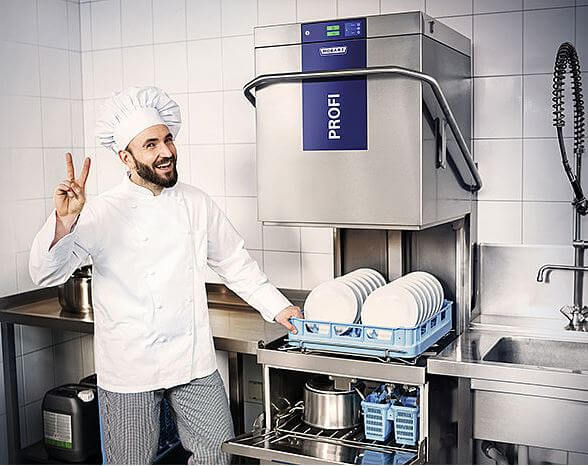
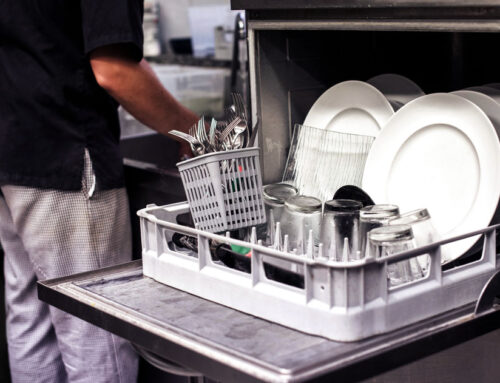
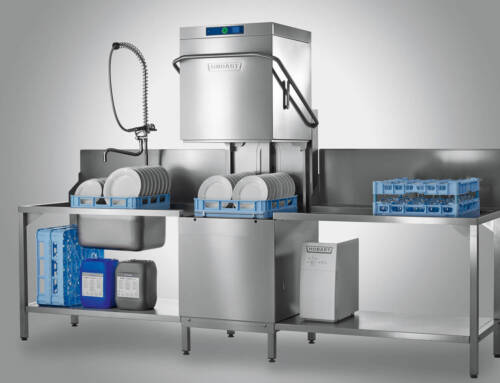
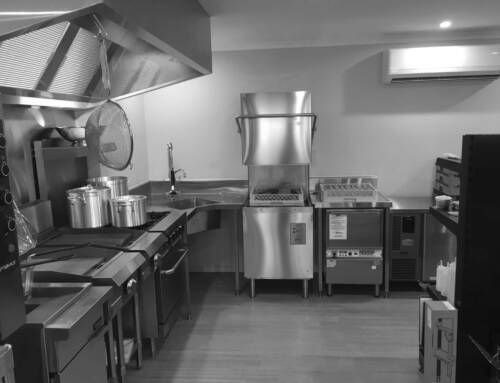
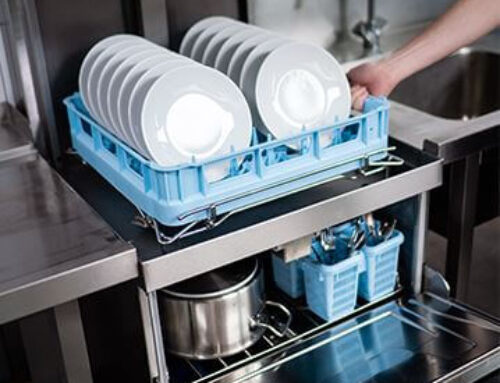
Leave A Comment